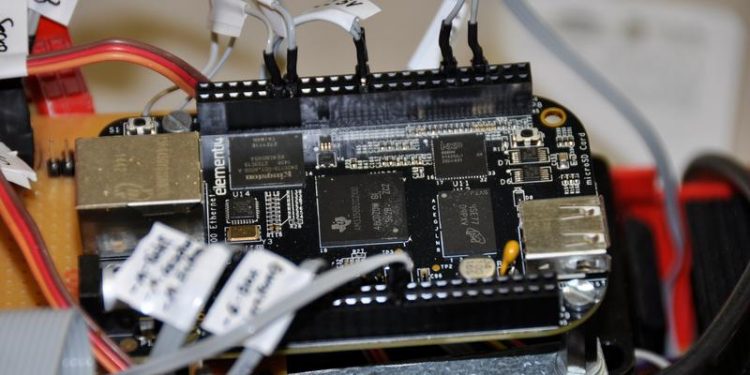The Internet of Things: TU Graz researchers increase the dependability of smart systems

In the project "Dependable Internet of Things in Adverse Environments", a team from TU Graz is researching how smart systems can work reliably even under the most difficult conditions; © Baustädter – TU Graz
Smart systems are taking over the increasingly complex tasks of our private and professional daily lives. To ensure that these systems work flawlessly in harsh environments, secure and dependable solutions are required.
An interdisciplinary research team at TU Graz is working on these solutions in the framework of the project ‘Dependability in the Internet of things’, which was originally the first ever lead project (https://www.tugraz.at/en/research/research-at-tu-graz/services-fuer-forschende/f…) of TU Graz.
In the context of this funding programme, the University gives special financing to interdisciplinary projects in the field of basic research to strengthen TU Graz’s research profile and to further develop outstanding top research areas.
In the ‘Dependable Internet of Things in Adverse Environments’ project, researchers are not developing any new smart applications, but instead are ensuring that applications will work in the way they are supposed to.
‘The Internet of things is being increasingly used for security-critical applications – not only must the individual appliances work reliably in isolation, but they also have to be dependable within the overall system and communicate flawlessly,’ explains project leader Kay Römer.
Promising results as foundation stone for the second project phase
The first three years of the project yielded promising results. The team developed a positioning system which works more efficiently and accurately than the systems available today.
It ensured the cooperation in the IoT by appliances from various manufacturers using an adaptive algorithm, and protected the integrated software against security attacks. And it developed a predictive system for autonomous vehicle convoys which preemptively sidesteps dangerous situations.
New objectives for the next three years
In the last few days the research project was extended for a further three years after successful evaluation by an external jury. Now the researchers want to upscale the previous results achieved in the laboratory to the actual realities in the field, as Kay Römer explains: ‘Our approaches work extremely well on the small scale. In a dynamic system such as the Internet of things in which hundreds of billions of intelligence systems could communicate with each other in the future, the challenge is so much bigger.
In the long term, the research project is meant to develop into a research centre in which specialists from all the different areas can work together to further increase dependability in the IoT.
The lead project ‘Dependability in the Internet of things’ was granted funding of two million euros for three years in 2015. After the successful evaluation carried out by the external specialist jury, the researchers have received a one-off, follow-up funding for a further three years.
This research topic is anchored in the Field of Expertise ‘Information, Communication & Computing‘ (https://www.tugraz.at/en/research/fields-of-expertise/information-communication-…), one of the five strategic FoE at TU Graz.
You can find more information on ‘Dependable Internet of Things in Adverse Environments’ project on the project website (https://www.tugraz.at/projekte/dependable-things/home/) and in our Planet Research section (https://www.tugraz.at/en/tu-graz/services/news-stories/planet-research/singlevie…).
Kay RÖMER
Univ.-Prof. Dipl.-Inform. Dr.sc.ETH
TU Graz | Institute of Technical Informatics
Inffeldgasse 16/1, 8010 Graz
Tel: +43 316 873 6400
Email: roemer@tugraz.at
https://www.tugraz.at/en/tu-graz/services/news-stories/media-service/singleview/…
Project website: https://www.tugraz.at/projekte/dependable-things/home/
Planet Research Article: https://www.tugraz.at/en/tu-graz/services/news-stories/planet-research/singlevie…
Interview with Kay Römer: https://www.tugraz.at/en/tu-graz/services/news-stories/face-to-face/singleview/a…
Media Contact
All latest news from the category: Interdisciplinary Research
News and developments from the field of interdisciplinary research.
Among other topics, you can find stimulating reports and articles related to microsystems, emotions research, futures research and stratospheric research.
Newest articles

A ‘language’ for ML models to predict nanopore properties
A large number of 2D materials like graphene can have nanopores – small holes formed by missing atoms through which foreign substances can pass. The properties of these nanopores dictate many…

Clinically validated, wearable ultrasound patch
… for continuous blood pressure monitoring. A team of researchers at the University of California San Diego has developed a new and improved wearable ultrasound patch for continuous and noninvasive…

A new puzzle piece for string theory research
Dr. Ksenia Fedosova from the Cluster of Excellence Mathematics Münster, along with an international research team, has proven a conjecture in string theory that physicists had proposed regarding certain equations….



